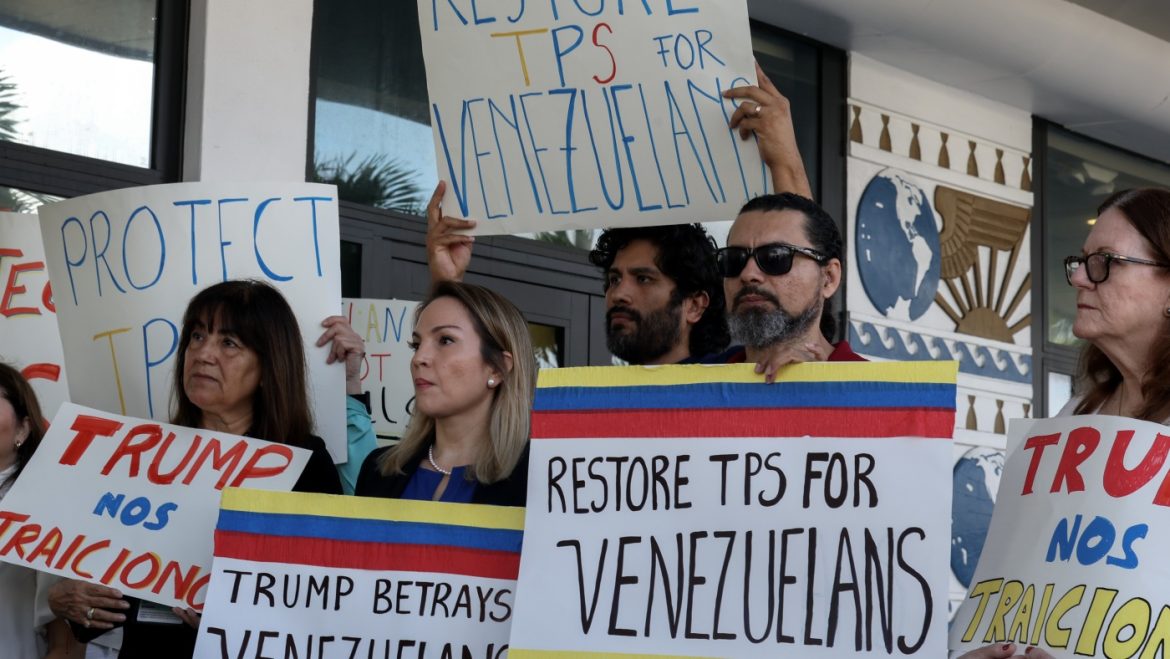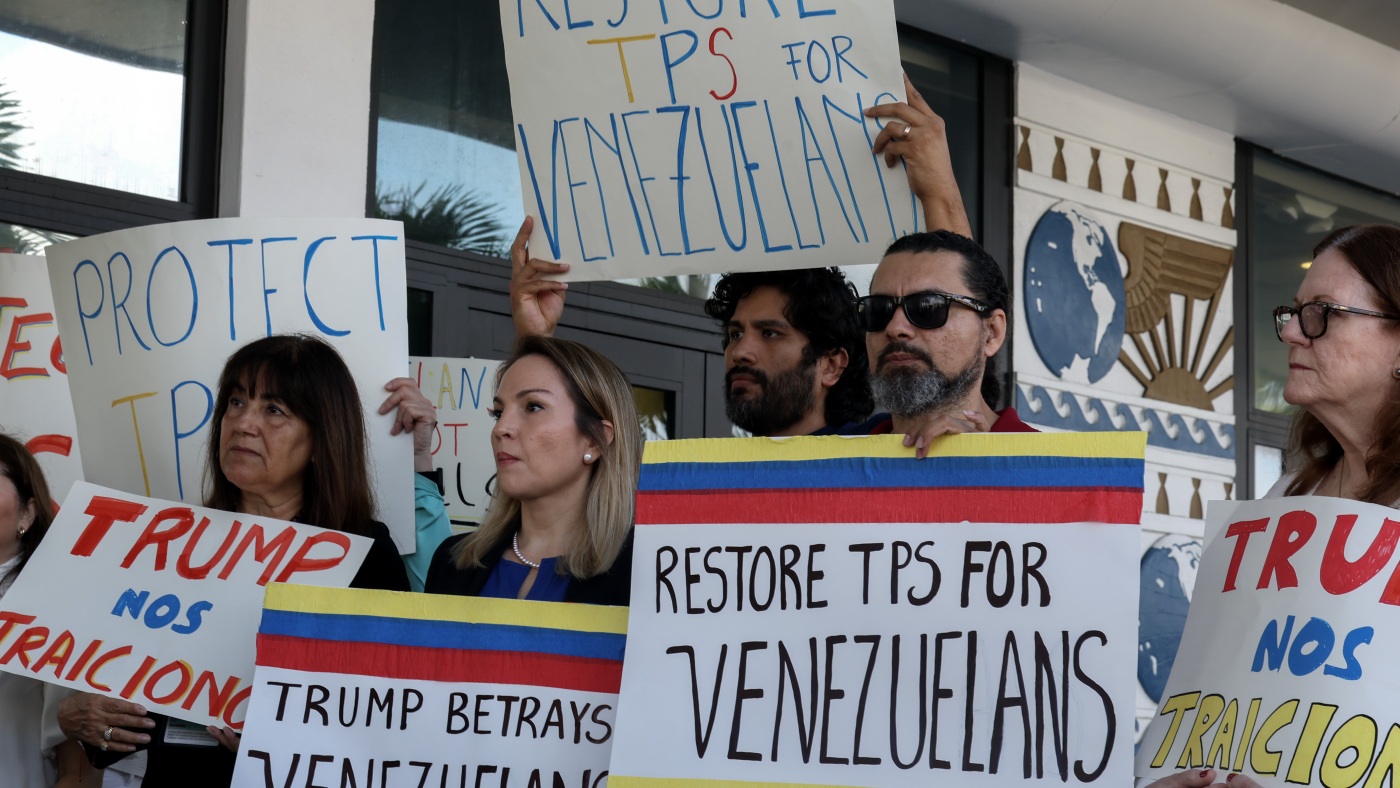The shifting legal landscape for Venezuelan nationals under the Temporary Protected Status (TPS) program in the United States has become a focal point of immigration policy debates, culminating in significant judicial and administrative actions that profoundly affect hundreds of thousands of migrants. This report meticulously examines the recent developments, judicial rulings, administrative decisions, and their broader implications for Venezuelan immigrants currently residing in the U.S.
Background: Temporary Protected Status for Venezuelans
Temporary Protected Status is a humanitarian immigration status granted by the U.S. government to nationals from countries experiencing conditions that temporarily prevent safe return, such as armed conflict, environmental disaster, or severe political instability. Venezuela was designated for TPS initially by the Biden administration, recognizing the ongoing economic and political turmoil under Nicolás Maduro’s presidency, which rendered return unsafe for many Venezuelans. At its peak, more than 600,000 Venezuelans benefited from this protection, allowing them work authorization and shelter from deportation.
Trump Administration’s Policy Shift
From the outset of his administration, President Donald Trump made clear his intent to roll back immigration protections extended under previous administrations. Among these efforts was the revocation of TPS for Venezuelan nationals, signaling a significant departure from the Biden-era humanitarian approach. The Trump administration officially moved to revoke TPS for roughly 350,000 Venezuelans, a subset drawn from the larger protected population, with a termination date originally set for September, cutting short an extension that was supposed to last through October 2026.
The rationale presented by the Trump administration contended that conditions in Venezuela had sufficiently improved to justify ending the protections. However, this assertion faced wide skepticism given persistent political instability, economic collapse, and human rights abuses documented in Venezuela.
Judicial Contests and Supreme Court Involvement
These revocation efforts triggered immediate legal challenges from TPS holders, advocacy groups, and civil rights organizations. Multiple federal courts, including a notable ruling from U.S. District Court Judge Ed Chen in San Francisco, initially blocked the termination of TPS protections. Judge Chen’s ruling emphasized legal and humanitarian concerns, highlighting no justifiable reason to abruptly remove protections, especially when the country conditions remained dire.
Despite these judicial interventions, the Trump administration appealed aggressively. The matter escalated to the U.S. Supreme Court, which intervened by issuing a stay on the lower courts’ orders. This Supreme Court decision allowed the Trump administration, at least temporarily, to proceed with removing TPS protections from the Venezuelan population.
This ruling carries monumental weight, as it potentially exposes around 350,000 Venezuelan immigrants to deportation and the loss of legal work status. The Court’s order passed with minimal dissent, underscoring a prevailing judicial willingness to defer to executive judgment on immigration enforcement matters.
Policy Implications and Humanitarian Consequences
Impact on Venezuelan Immigrants
The immediate effect of the Supreme Court’s decision and administrative revocations is that hundreds of thousands of Venezuelans currently living legally and working in the United States face losing their legal standing. Without TPS, many are vulnerable to deportation back to Venezuela, a country still submerged in crisis.
Activists and immigration advocates have labeled the move as a “betrayal,” noting that deporting these individuals could be life-threatening. Some returnees risk political persecution, imprisonment, or even death, while others would face devastating economic hardship in a country where basic necessities are scarce. For many Venezuelan families, TPS represented a lifeline to stability, safety, and opportunity in the U.S.
Broader Immigration Policy Context
This situation highlights the broader tension and fluctuations in U.S. immigration policy across different administrations. While TPS is designed as a temporary refuge, its extension or revocation can become politically charged, reflecting differing philosophies on immigration control and humanitarian obligation.
The Trump administration’s approach represents a hardline stance aimed at reducing protections for migrants, repositioning immigration enforcement as a priority over prolonged humanitarian relief. In contrast, the Biden administration’s original designation reflected a more expansive view of protection based on ongoing hardships in migrants’ home countries.
The Supreme Court’s decision to allow the administrative rollback reinforces judicial deference to executive discretion in immigration and shows the complexity of balancing legal, humanitarian, and political considerations.
Legal Developments at a Glance
– The Biden administration designated Venezuela for TPS in 2021 and expanded protections in 2023.
– Trump administration revoked the TPS extension in early 2025, affecting 350,000 to over 600,000 Venezuelans.
– Federal courts initially blocked this move, citing humanitarian and procedural concerns.
– The U.S. Supreme Court intervened to stay these blocks, enabling the administration’s revocation efforts.
– Lawsuits by Venezuelan TPS holders are ongoing, challenging the legality and fairness of the revocation.
Economic and Social Effects Within the U.S.
The removal of TPS protections for Venezuelans will also have domestic repercussions. Many beneficiaries have established businesses, contributed to local economies, and integrated socially into their U.S. communities. The abrupt termination of work authorizations threatens their livelihoods and undermines social stability in communities that have grown increasingly reliant on immigrant labor and cultural contributions.
Employers may face labor shortages in sectors where Venezuelans hold significant roles. Moreover, the stress of potential deportation impacts mental health and family cohesion, increasing the vulnerability of entire communities.
Looking Ahead: Uncertain Futures
The situation remains fluid, hinging on ongoing litigation and possible further judicial decisions. The DHS, now led by Secretary Kristi Noem under the Trump administration, continues to enforce the revocation, while legal battles seek to restore TPS or halt deportations.
For Venezuelan migrants, the uncertainty not only defines their legal status but also shapes daily realities — anxiety over the future, risks of separation from families, and fears of repatriation to a country with few prospects for safety or prosperity.
Conclusion: A Defining Moment for U.S. Immigration Policy and Human Rights
The revocation of Temporary Protected Status for Venezuelans epitomizes the clash between competing visions of immigration policy – one prioritizing strict enforcement and retraction of temporary relief, the other emphasizing humanitarian assistance amid global crises. The Supreme Court’s decision to enable the Trump administration’s rollback sets a precedent reinforcing executive power over immigration protections, while dramatically altering the lives of hundreds of thousands of immigrants seeking refuge.
As policy, legal battles, and humanitarian debates continue to unfold, the Venezuelan TPS case stands as a powerful reminder of the complexities surrounding immigration, human rights, and national sovereignty — pressing issues that will surely shape future discussions and decisions on asylum, refuge, and protection in the United States.


